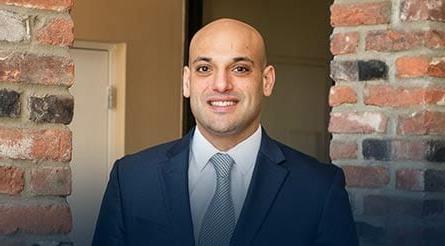Criminal Defense Glossary of Terms
Being charged with a criminal offense in Indiana or Kentucky is always frightening. However, all of the unfamiliar terminology can make the situation even more overwhelming. The law is not intended to be challenging to citizens, but because the law can be complex and is often rooted in precedents going back centuries, the language used by attorneys, judges and law enforcement officials is inherently unfamiliar to many of us.
The good news is that understanding a few of the most basic terms can help a person feel less intimidated and more empowered by the justice system. The more you know, the less formidable the law will seem. If you’ve had experiences with the legal system, you might be wondering exactly what some of the terminology means. Below are explanations for some of the terms you are likely to encounter throughout your case.
Defendant – The person who has been charged with a crime.
Prosecutor – The attorney who represents the local, state or federal government in a case against the defendant.
Indictment – The formal process in which the defendant is charged with a crime.
Miranda Rights – The constitutional provisions that provide the defendant with the right to remain silent, not to incriminate himself or herself and to hire an attorney. The defendant must be informed of these rights when arrested or detained.
Warrant – A court order that allows law enforcement to take some action, such as searching a person’s home or arresting someone.
Subpoena – A court document that requires a witness to appear in court and give testimony.
Arraignment – A hearing in which the judge states the defendant’s criminal charges, asks whether the defendant needs a court-appointed attorney and asks the defendant to enter his or her plea.
Bail – The amount of money the defendant must pay to get out of jail and wait for the next court appearance.
Affidavit – A statement of fact a person swears to and signs under oath.
Continuance – A delay of proceedings in a case to another time or date.
Discovery – A part of criminal proceedings in which the defendant is informed of the evidence against them.
Misdemeanor – A lesser criminal charge that isn’t as serious as a felony.
Felony – A more serious criminal charge that carries more severe penalties than a misdemeanor.
Jury – A group of the defendant’s peers that reviews the evidence, listens to the arguments from both sides and decides whether the defendant is guilty of the charges.
Mistrial – An invalid trial, usually because of a hung jury, interruption or error.
Plea bargain – A deal offered by the prosecution that requires the defendant to plead guilty to a lesser charge in exchange for a more lenient sentence.
Verdict – An opinion or judgment. In criminal trials, the verdict may be “guilty” or “not guilty.” If the defendant is facing multiple charges, he or she will receive a verdict for each charge.
Acquittal – A “not guilty” verdict given by a jury or a judge. A person can also be acquitted if there is insufficient evidence against him.
Sentence – The consequences the defendant will face if he or she is found guilty or pleads guilty to a certain charge. The defendant’s sentence may include time in jail or prison, fines and other penalties.
Appeal – A request to have a case heard by a higher court after an unfavorable result.
Probation – A lesser consequence for a criminal conviction that allows the defendant to stay out of jail or prison. During probation, he or she must follow certain rules to avoid incarceration.
Parole – The release of a prisoner contingent on certain stipulations, often including good behavior. Parole is usually granted if the prisoner keeps a good standing while imprisoned.
These are just a few of the terms you may hear while you are facing criminal charges. Because criminal laws in Indiana and Kentucky can be so complicated, it’s best to hire an experienced criminal defense attorney to help you through your case. Not only will the attorney be able to help you understand the proceedings, but he or she will also be able to help you strengthen your defense and reduce your chances of conviction. It is best to contact a criminal defense attorney as soon as possible after an arrest. If you are facing criminal charges in Indiana or Kentucky, please contact Church, Langdon, Lopp, Banet Law today by calling 812-725-8224 or filling out our online contact form to make an appointment.

Attorney Marc Tawfik
Marc is a Kentucky native, having lived and worked in the state the majority of his life. He is a licensed attorney in Kentucky and Indiana, and his focus is on trial work, including civil litigation and criminal defense. He has represented a wide variety of clients, and he is committed to putting his clients’ needs first. [ Attorney Bio ]




